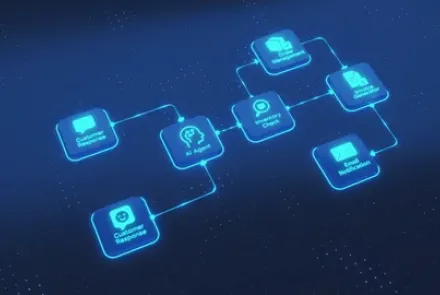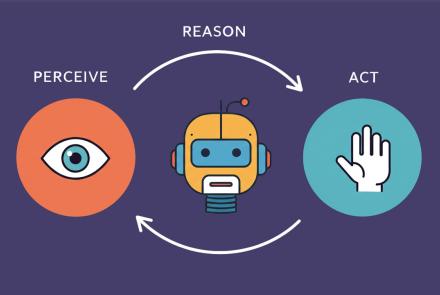Top 5 Books to Keep on Your Bookshelf For as Long as You Work in AI
1. Artificial Intelligence: A Modern Approach — Stuart J. Russell & Peter Norvig
Arguably the OT (Old Testament) of AI textbooks, Artificial Intelligence: A Modern Approach (AIMA) is a foundational, comprehensive guide to the field. First published in 1995, its fourth edition arrived in 2020, offering an updated blend of theory and modern AI topics.Wikipedia
What’s Inside
The book covers:
Fundamentals: search strategies, logic, probability.
Advanced realms: machine learning, neural networks, deep learning, reinforcement learning, multi-agent systems, computer vision.Wikipedia
Tons of pseudo-code and implementations across languages (e.g., Python, Java, Lisp). It’s used in over 1,400 universities worldwide.Wikipediaayadata.ai
Who Should Read It?
Academics (undergrad/grad students).
AI practitioners craving depth.
Anyone serious about understanding the theoretical backbone of AI.
Why It Stays Relevant
It’s the de facto standard textbook in AI.Wikipedia
Updated to reflect recent breakthroughs in deep reinforcement learning and ethics.ayadata.ai
Balances theory and practice—technical but pragmatic.
2. Superintelligence: Paths, Dangers, Strategies — Nick Bostrom
A philosophical and existential exploration of what might happen if machines vastly surpass human intelligence. Bostrom examines how superintelligence could emerge and how to mitigate its existential risks.World CatalogueAnalytics InsightWikipedia
Core Themes
Paths toward superintelligence, including self-learning and recursive self-improvement.
Dangers: misaligned AI actions, loss of human control, global risk.
Strategies: alignment, value-loading, international cooperation.
Impact & Reception
Influenced heavyweights like Elon Musk and Bill Gates, both voicing concern over AI risk.Wikipedia
Reviews acknowledge it's thought-provoking albeit challenging—“a hard read but rewarding.”Wikipedia
Why It Matters
Ethics-focused: demands we think beyond capability to control and safety.
A must-read for policymakers, AI researchers, and ethical futurists.
3. Life 3.0: Being Human in the Age of Artificial Intelligence — Max Tegmark
From 2017, Life 3.0 explores how AI could shape the future of humanity—from automation to cosmic scale.Wikipedia
Highlights
Scenarios from benign automation to catastrophic misuse.
Discussion on AI’s impact on jobs, economy, law, and global governance.
Philosophical ponderings: what counts as “life” and “consciousness”?
Why It Resonates
Accessible blend of cosmology, philosophy, and tech speculation.
A profound reflection on our species' future in an AI-dominated era.
4. AI Snake Oil: What Artificial Intelligence Can Do, What It Can’t, and How to Tell the Difference — Arvind Narayanan & Sayash Kapoor
A 2024 patient unpacking of AI hype vs. reality.Medium
Focus
Debunking exaggerated claims around AI capabilities.
Emphasizing real — and sometimes limited — achievements of predictive systems.
Arming readers to critically assess AI media narratives.
Fit for
Business leaders.
Educators and journalists.
Anyone skeptical of sensational portrayals of AI.
Why It Matters
Encourages an informed and cautious outlook on AI, separating practicality from fantasy.
5. Co-Intelligence: Living and Working with AI — Ethan Mollick
Also from 2024, this book reframes AI as a partner, not a replacement.Mediumcyberinfoblog.com
Key Themes
Practical advice on human–AI collaboration.
Introduces principles like “be the human-in-the-loop.”
Real-world examples across education, business, and creativity.
Best For
Professionals looking to integrate AI daily.
Teams and organizations adapting to AI-enhanced workflows.
Why It’s Valuable
Offers a positive, hands-on lens on AI — you don’t need to fear it, you can work with it.
Bonus Mentions
These aren’t part of the "top five" but are noteworthy:
The Singularity Is Nearer — Ray Kurzweil’s 2024 follow-up to his classic vision of AI-human merging by 2045. Reaffirms predictions like human-level AI by 2029.Five BooksWikipediaTIME
The Master Algorithm — Pedro Domingos’ quest for a unified learning algorithm. Clear, engaging, and influential enough to be recommended by Bill Gates.Wikipedia
AI 2041: 10 Visions for Our Future — A combo of sci-fi and analysis by Chen Qiufan & Kai-Fu Lee. Great for those curious about AI’s near-term societal shift.Analytics Insight
Why Machines Learn — Anil Ananthaswamy’s mathematically grounded, accessible exploration of modern AI foundations.Mediumcyberinfoblog.com
AI Superpowers — Kai-Fu Lee’s geopolitical take on US vs. China in AI, relevant to policymakers and business leaders.DigitalDefynd




